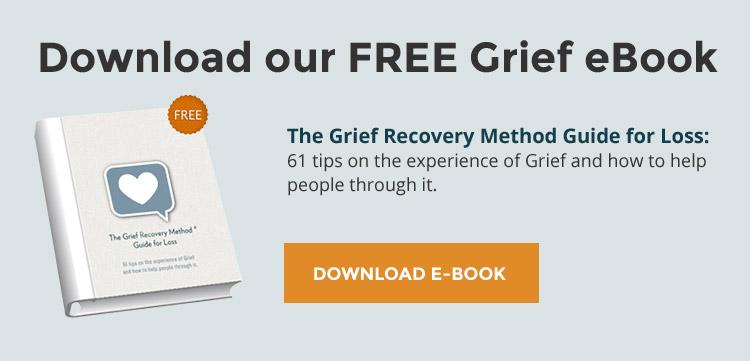Post Traumatic Stress Disorder is a relatively new term. It was first introduced in the 1980 American Psychiatric Association Diagnostic Manual of Mental Disorders (DSM-III). It has since been further modified in its definition in the DSM-IV and DSM-5. What it describes, however, is hardly new. Some have said that this concept of being overwhelmed by a single or series of related events can be tracked back to the first caveman attacked by a sabre toothed tiger.
Since the 1600’s, previous terms that described similar diagnoses were primarily focused on those who served in the military. Such terms as shell shocked, combat exhaustion, and post-Vietnam combat reaction are just a few of those terms used in the last century. It now goes beyond military involvement to refer to people who have dealt with enormously impactful events in their lives, including rape, physical or sexual abuse, and terrorist attacks, to name just a very few.
It is a diagnosis. It cannot be made by a clinician until at least four weeks after that event has taken place. There are varying degrees as to how it impacts the life of the person so diagnosed. Many of the symptoms are remarkably similar to unresolved grief.
In the first few years after this term was coined, it was strictly confined to clinical practice. Unfortunately, like many terms, it has taken on a bit of a life of its own. After Survivor-Africa, one of the participants claimed on a late night talk show that she had been so unfairly edited in the televised show that she was suffering from PTSD. It has become so frequently used in all forms of media that it is not uncommon to hear a journalist, with no psychiatric training, suggesting it as a possible diagnosis for someone after a tragic event.
When it comes to working with people who tell us that they are suffering from PTSD or Post Traumatic Stress Disorder, the first question that needs to be asked is how and when they were diagnosed. The reason for this is simple. It is very possible that they have self-diagnosed based on what they think this term means. Very few people actually go to the National Center for PTSD, a part of the U.S. Veterans Administration, for the complete definition and the test of symptoms. Only a small number of people have actually been diagnosed by a qualified psychiatric clinician.
Those who have self-diagnosed may have simply found a label that seems to explain and justify why they are having problems. The problem with any label is it can offer a reason for their problem, but does nothing to solve it. It can even end up being an impediment to them taking action. As stated earlier, the symptoms of PTSD are remarkably similar to those of grief. It is possible that those who claim to suffer from this disorder without a true diagnosis are indeed grievers overwhelmed by a recent, or not so recent, emotional loss. As grief professionals, we know that there are actions they can take to recover!

Grief is the normal and natural emotional reaction to any change that has impacted a life. Since most people have never had any meaningful training on how to deal with loss, it can be overwhelming. Having someone else tell you to “be strong and get over it” does nothing to effectively deal with that pain. Successful recovery from loss involves sorting out those things that were incomplete in that relationship and putting voice to those things we wish might have been different or better. It also involves dealing with the dreams and expectations of a different future than what is being faced after that loss. This entire process is the foundation for the Grief Recovery Method. It is a plan for action, rather than leaving people with simply a label to explain that they are in emotional pain.
Even for those have been given this “label” by a professional, taking Grief Recovery Method (GRM) action can be a valuable part of the “healing process.” One of the more effective therapies, outlined by the National Center for PTSD, involves helping individuals understand how that event changed their thoughts and feelings, leaving them at a loss to cope with life. A key part of the GRM is to help people discover those things that have been incomplete for them after their loss event and to help them make the necessary changes in their belief system so they can take personal responsibility to make changes in that system. Once this has been done, they can take action for completion and recovery.
The key to starting this process is outlined in the section on trauma and PTSD in the most recent edition of “The Grief Recovery Handbook.” It is essential that we move from clinical terms to the heart of the situation in dealing with the emotional pain that is grief! When someone tells you that they are suffering from PTSD and why, it involves acknowledging their statement and offering a set of words that address the emotional feelings that may have resulted from that event. Words such as “loss of trust”, "loss of safety”, and “loss of control” are among the suggestions offered. This may be the first time that this person has been offered feeling words that express how this event touched them on a personal level. If they respond affirmatively, you can then invite them to share other feelings that might have been generated. The focus of the GRM is in allowing people to safely share their feelings without analysis, criticism, or judgement, and then to offer them a mechanism to complete the relationship that caused these feelings to manifest.
I encourage you to read the section on trauma and PTSD in this latest edition of the handbook and to utilize this information in helping people who present with this diagnosis, whether it has been one they made themselves or one that was offered by a clinician. John W. James, one of the authors and the founder of the Grief Recovery Institute, served in the Vietnam Conflict and dealt with the horrors of battlefield losses first hand. The tools he developed that are the backbone of the GRM were a major part of his personal recovery.
You might also find value in this previous article:

























Comments
Nancy Hull, IHC, GRS
Phil Cox, PhD
stephen moeller, grief recovery specialist
Add new comment